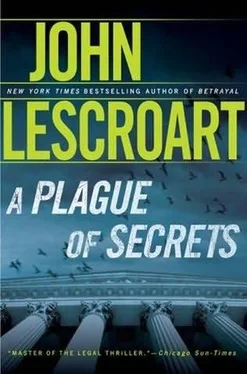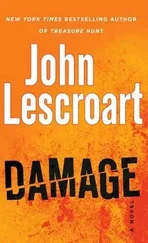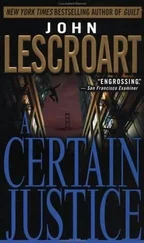“But you’ve still got questions?”
“Not really questions, no.” Bracco shook his head. “And not really about whether Maya’s guilty. I mean, who else? And with her motive and connections to both these guys? Just that she knew both of them, they were squeezing her. She’s a liar. It just totally works.”
“But?”
“But I think we could have built Stier a better case. Now it’s all this other stuff with the forfeitures and political heat. So Maya’s a rich person who knows criminals, therefore she’s a criminal, and if she’s a criminal, then she probably did these guys. I just don’t want to have to hold all that together on the stand, that’s all, when I don’t think we’ve got the evidence to back it up. Debra’ll be way better at it.”
That same morning in Chinatown the mood was strained at The Hunt Club.
Tamara Dade sat red-eyed at her computer, unspeaking, unsmiling. Wyatt Hunt had stopped by one of the local bakeries on the way in and had brought a bag of hot, fresh-from-the-oven cha sui bao , the delicious pork-filled buns that were a rare treat and Tamara’s favorite food on earth, and she told him she wasn’t hungry.
After twenty minutes back in his office Hunt stood and opened the door back to the reception area. “Tam,” he said gently, “have you heard from Craig?”
She half turned to face him. “He called in sick.”
“Sick?” This was decidedly unusual. Sickness wasn’t really an acceptable part of the culture of Hunt’s business. “What’s he got? Tam? Hey. Are you okay?”
Clearly, she wasn’t. After the merest glance at her boss, and again without a word or a look back, she rose from her chair and walked out the main door. This led both down to Grant Street outside and to the bathroom, and Hunt wasn’t at all sure whether she’d be back until he realized she hadn’t taken her purse.
So leaving the door between reception and his office open in case she wanted to come in and talk to him, he went back to his desk, picked up his telephone, and punched some numbers.
“Hey, Wes.”
“Hey yourself.”
“You talk to Diz this morning?”
“No. He’s at trial. He’s been going straight in.”
“I know. But he stopped by my place last night.”
“What’d he want?”
“He wants me to put a press on who killed his victims.”
This brought a pause. Farrell was the firm’s resident adviser on never believing that your client was innocent. This was because the celebrated case that had made his bones in the city’s legal community was one involving his best friend, another attorney named Mark Dooher, who’d been charged with murdering his wife. Farrell had gotten him off, cleanly acquitted. That turned out to have been a bad mistake that almost cost Farrell his own life a while later. “You mean Maya Townshend’s victims?”
“Diz doesn’t think so. Or at least he isn’t sure anymore.”
“Since when?”
“Since yesterday afternoon when he talked to her.”
“Denied it, did she?”
“Ambiguously, at least. Enough to make him think he might be neglecting or ignoring something important.”
“He always thinks that. That’s why we made him managing partner. Nothing gets through.” Hunt heard a breath in the phone. “Anyway, you’re calling me about this because…?”
“Because you knew Vogler.”
Another hesitation. “If Diz told you that, I’m going to have to have a talk with him.”
“It wasn’t Diz. I did some Net searching back when I first heard about this list of Vogler’s customers.”
“How’d you even hear about that?”
“You know Craig, who works here?”
“Sure.”
“He’s on it too. Told me about it right up-front in case it was a problem for me. I told him it was nothing I couldn’t handle, but he’d be smarter if he didn’t do anything overtly against the law while he was trying to get his license. Anyway, I got curious after that, found it in a blog somewhere. Nothing’s sacred anymore, in case you hadn’t heard. Good news for the PI trade; not so much for everybody else.”
“Tell me about it. So, okay, I knew Vogler. So did your Craig. Ask him.”
“I would, but he’s out sick today. I thought I’d start with you.”
“I have no idea, Wyatt, what I could tell you. That’s the honest truth.”
“I believe you, and that makes us about even. I don’t know what I want to know. Not exactly, anyway. I just figured the weed side of the equation’s been left out, I mean if somebody on that side killed him. So nobody’s talked about how that whole thing worked. How often, for example, did you buy from him?”
“About once a month. I hope you realize this makes me damned uncomfortable, Wyatt. I’ve been trying to put that all behind me as just another dumb mistake. Sam and I almost broke up over it, too, among other things. What does it matter how often I scored with Dylan?”
“Again, Wes, I don’t know. I’m trying to get a sense of how much marijuana he moved, or anything else. If he had seventy regular customers, give or take. What did a bag go for?”
“Mine were a hundred.”
“So call it ten grand a month?”
“If you say so.”
“I’ve got to think that’s serious enough money to get shot over, in spite of everybody seeming to believe it wasn’t about the dope. How’d it get delivered?”
Once again, Hunt heard a frustrated exhale. “You asked for the manager’s special, whoever was on the register would call Dylan. He’d go in the back, come out with a sealed Ziploc in the bottom of a regular coffee bag, grind some beans in over it, close it up.”
“And how long had this been going on?”
“I don’t know. I made the connection maybe six years ago, so at least that long. And I don’t really believe I was his first customer.”
“And you’re telling me that in all that time, none of the employees picked up on it?”
“No. I can’t imagine they wouldn’t have figured it out.”
“But according to Diz that’s been no part of the police investigation.”
“That’s hard to believe.”
“Yeah, but I bet I know where some of that ten grand went every month. And I know why the guy had such loyal employees.”
“You think one of them…?”
“I have no idea, Wes. Just like when I called you. But at least now I’ve got someplace fresh to start looking.”
Tamara stood in the open doorway, her face blotched, her eyes red. “I’m sorry.”
Hunt waved off the apology. He’d known his secretary since the time when, as a Child Protective Services worker, he’d been called to the home of the two Dade children, brother and sister, who’d missed several days of school without an excuse. At the time Tamara had been Tammy, a starving twelve-year-old trying to feed and care for her emaciated younger brother, Mickey, and waiting for her mother-a heroin addict who’d died in her bedroom of an overdose-to wake up. Hunt, a former foster child himself, had followed the lives of both of the kids into young adulthood and, when he’d opened his agency, had brought Tamara along full-time, and began using Mickey as a runner and occasional driver.
Now she said to him, “Craig and I had a fight. I think we might have broken up.”
“Is that why he’s not in here?”
“I’d guess so. There was just the message when I got in, that he was sick. But he wasn’t sick last night.”
Hunt leaned back in his ergonomic chair, rocked in it once or twice. “You want to talk about it?”
“I don’t know.” But she came inside his door and let herself down onto one of the chairs in front of him. “It’s just so stupid, is all.”
“Stupid happens.” He gave the silence another beat. “Do you want to go home? I’ve got some fieldwork I need to do. We can close up.”
Читать дальше












